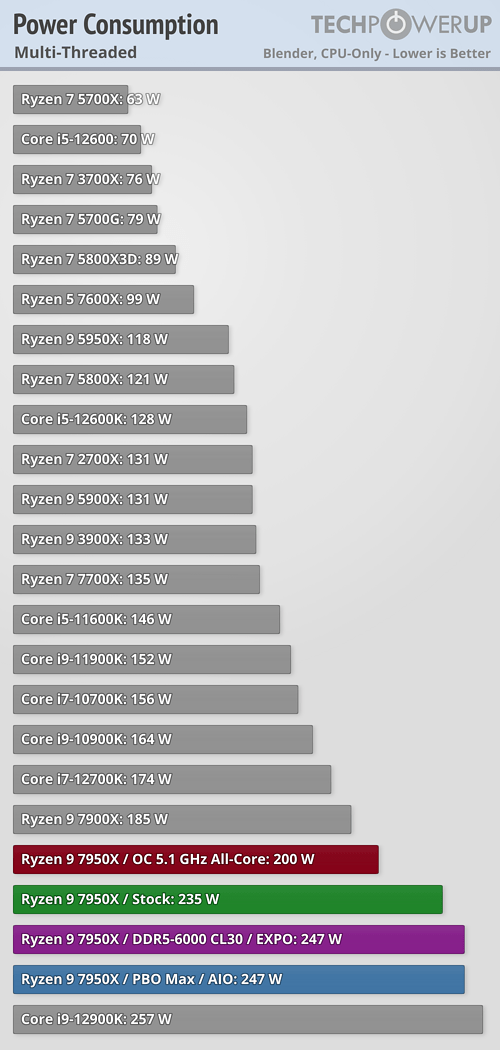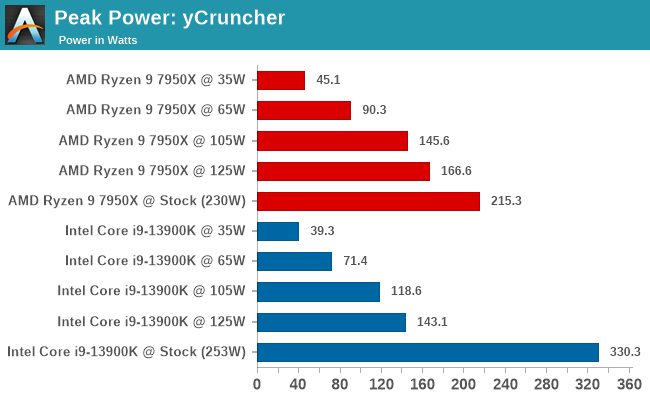TerryLaze
Titan
Meanwhile back on Earth...While technically possible, 170W 8-core would be a huge departure from previous generations.
8-core 8700G or 7700 are rated at 65W.
The 7800X3D is the only one at 120W. The 7800X at 105.
170W is a ridiculous amount for 8-core and only Intel has pushed the consumption so high for low-core count CPUs, and precisely to achieve this 3.5% advantage in single core.
What's missing in this article is the power consumption indeed when running single-core bench. Intel so far has a slight advantage but burning >2X the power.
The 7950x with PBO and with enough cooling was using the same amount of power as the 12900k ~250W even just with expo for fast ram it was the same.
The 7900x is still using 185W
TDP is not the power draw, PPT is, and that is limited to 230W but mobos try to go above that hence why we have more like 250W here.





